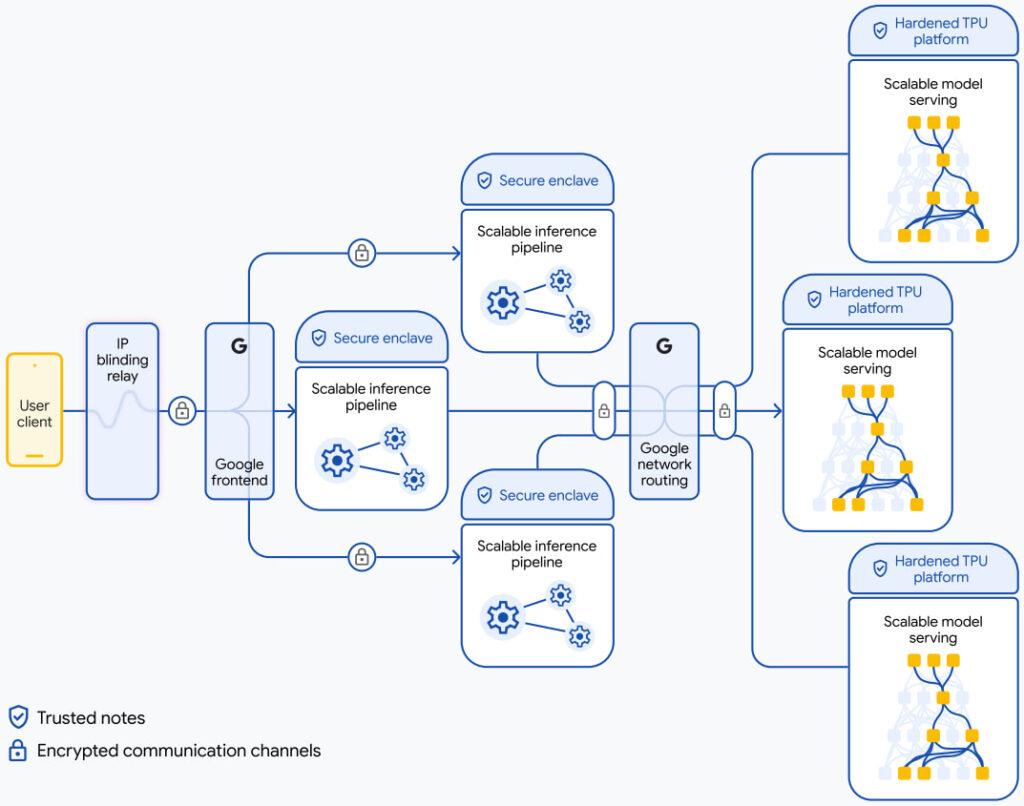
Google has introduced Private AI Compute, a secure AI processing platform that delivers the capabilities of its most advanced Gemini models in the cloud while keeping user data inaccessible to even Google itself.
The initiative is part of the company's broader efforts to combine AI utility with stringent privacy guarantees.
Private AI Compute enables high-performance AI experiences that previously required full on-device processing, allowing more sophisticated tasks, such as natural language understanding, real-time summarization, and proactive suggestions, to operate with cloud-level performance while maintaining local-like privacy standards.
At its core, Private AI Compute is built on Google's integrated stack, leveraging its in-house Tensor Processing Units (TPUs) and a fortified architecture anchored by Titanium Intelligence Enclaves (TIE). These enclaves form a sealed, hardware-protected cloud environment where data is processed in isolation. Crucially, Google's design ensures that user data is encrypted in transit and remains inaccessible even to Google engineers or infrastructure services, thanks to a strict “no access” policy enforced by remote attestation and secure session protocols.
Private AI Compute reflects Google's interpretation of a dual-track AI future: combining the privacy strengths of on-device processing with the intelligence and scale of cloud-based large models. The platform adheres to Google's Secure AI Framework (SAIF) and aligns with the company's published AI and privacy principles.

Initial deployments of Private AI Compute are already live in consumer-facing features. The Magic Cue assistant on the Pixel 10, for example, now offers more relevant prompts by tapping into Gemini-powered cloud reasoning. Similarly, the Recorder app's transcription summaries now support more languages, using the new cloud capabilities without compromising user data privacy. These implementations aim to show how more powerful AI can coexist with meaningful privacy protections, especially in areas involving sensitive personal information.
Google's use of Private AI Compute also integrates technical advancements like binary authorization for code integrity, project-oak-based confidential computing sessions, and support for standards such as the Noise Protocol for secure communication. The platform is rooted in broader research from confidential federated analytics and differential privacy efforts developed by Google's AI teams in recent years.
This announcement accompanies the November Pixel Feature Drop, which includes privacy-forward tools like scam detection in chat notifications, AI-driven notification summaries, and personalized editing features in Google Photos, all further amplified by Gemini models running under the watchful constraints of Private AI Compute.







Leave a Reply